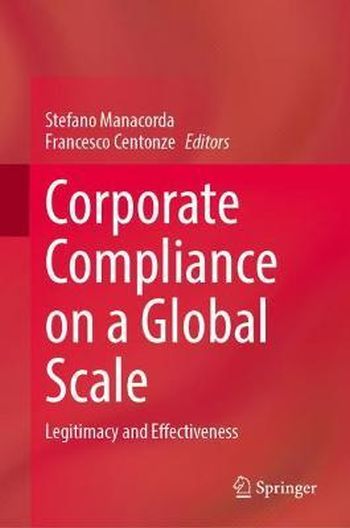
This edited volume presents an innovative and critical analysis of corporate compliance from an interdisciplinary and international perspective. It defines the historical framework and the various roles played by corporate compliance in today's context. It questions how different cultures affect economic behaviors and under which conditions the individual choices may be directed toward law-abiding behavior. Examining corporate compliance as a tool of criminal and regulatory policy strategies in different countries and sectors, this book also aims to provide a picture of the dimension and scope of the public-private partnership, focusing on the prevention and detection of corporate crimes. It analyzes the effects of corporate compliance on the internal organization in terms of cost-benefit assessment, as well as the opportunities in technical innovation for detecting and controlling risk.